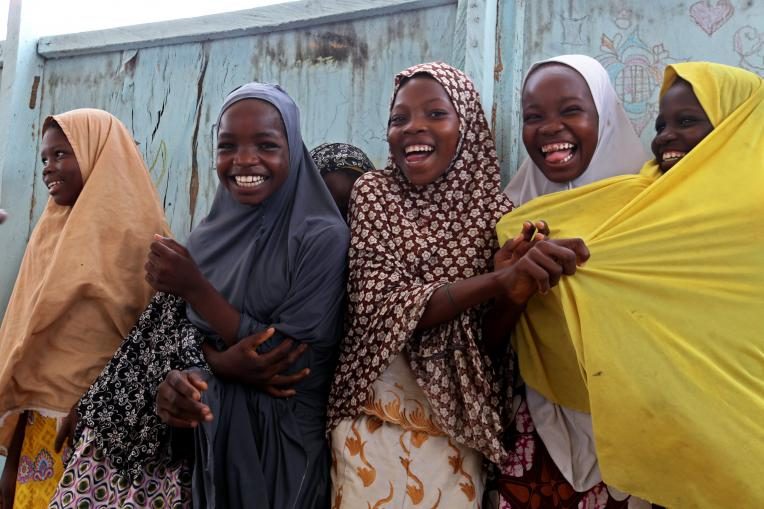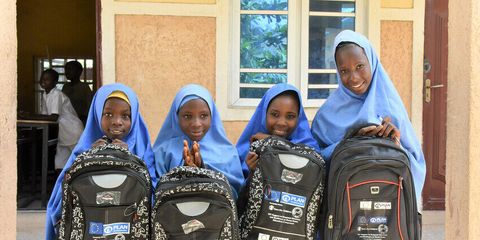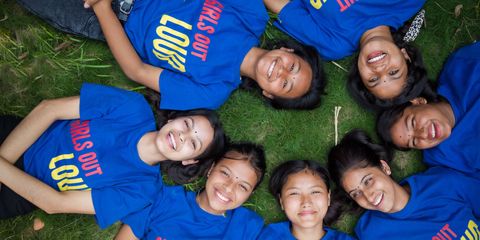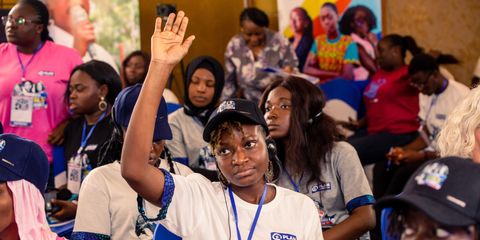10 MARCH 2021
Girls’ rights activists and campaigners came together in Nigeria on International Women’s Day to call for an end to online violence.

Rights activists and campaigners in Nigeria have called on the government and other civil society organisations to raise the bar in law enforcement and mass education of the public on ways to end online violence against children and girls.
Speaking at a webinar organised by Plan International Nigeria on Monday 8 March 2021 to mark International Women’s Day, CEO of Cee Hope Nigeria, Ms. Betty Abah said negative stereotyping and misinformation were making online experiences traumatic for women and girls.
The topic of the webinar was: ‘Preventing a Digital Lockout: Challenging Drivers of Gender Bias and Inequality’. It was moderated by Plan International Nigeria’s Senior Gender and Inclusion Manager, Obianuju Osude.
Young people most at risk
“We need to insist and keep fighting back against online violence. The highest victims of online bullying are young people because of their age and that they are unaware of where to get help,” Abah said. “If Ochanya had information that she could speak up to bring her abusers to book, she probably wouldn’t have died.”
We need to put a lot of effort into education so people know what they write is capable of hurting others.
In 2018, Betty Abah campaigned for justice for Ochanya Ogbanje, a 13 year old girl who was serially raped for 5 years by a father and a son in Benue state till she succumbed to the abuse and died.
In last year’s edition of Plan International’s annual State of the World’s Girls report series, titled ‘Free to be Online? Girls’ and Young Women’s Experience of Online Harassment’ more than half of girls surveyed from around the world said they had been harassed and abused online. The report also revealed that 1 in 4 girls abused online feels physically unsafe as a result.
New forms of violence against girls
Cynthia Mbamalu, the programme director at Yiaga Africa lamented how the advent of social media has brought forward new ways of violence against girls including slut-shaming, hate speech, pornography and bullying, among others.
These, she said, are mostly targeted at women to silence their legitimate right to free expression.
Mbamalu however called for a public awareness campaign for people to be properly educated on the ills of cyber violence and bullying.
“Some people think they are just tweeting their minds and expressing their freedom of speech. We need to put a lot of effort into education and awareness, so people know what they write is capable of hurting others.” she said.
The Yiaga programme director also called for law enforcement by government agencies to deter would be perpetrators of online violence against children and girls.
Girls speak out
Speaking on her personal experience, a Plan International Nigeria’s Girls Get Equal activist, Treasure said at one time she had, “Pulled down her social media accounts due to online harassment.”
Just as she also agreed that awareness was key to stopping online bullying of girls into silence, Treasure further emphasised the need for sex education for children using age appropriate language as a means of preparing them against paedophilia online.
It’s often said that technology drives the future but it is worrisome that a considerable percentage of the population risk being left behind as a result of bullying and harassment.


